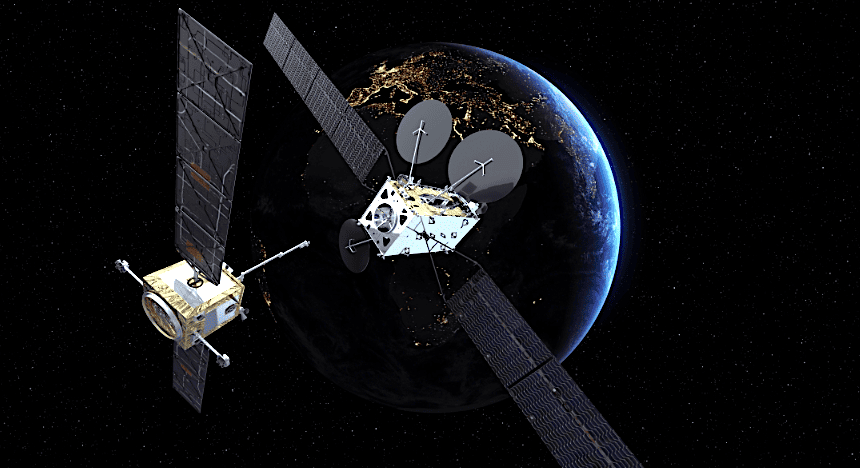 (Source: Thales Alenia Space)
(Source: Thales Alenia Space)
PARIS — A Thales Alenia Space-led consortium has won a $255 million contract with the Italian Space Agency (ASI) to design and build an in-orbit satellite-servicing mission to launch in 2026 with a demonstration mission to refuel an orbiting vehicle.
The contract, valued at 235 million euros ($255 million), is the latest in a series financed by Italy’s PNRR recovery fund using European Union loans.
Italy is not the only EU member to use these pandemic-recovery funds for space technology. But Italy’s space focus, valued at well over $1 billion, is the largest and is financing a range of programs in launcher development and Earth observation in addition to in-space servicing.
The ASI contract follows a 2022 contract from the European Commission’s Horizon Europe research program. The European Robotic Orbital Support Services In-Orbit Demonstration (EROSS IOD) mission, also scheduled for 2026, is designed to demonstrate a variety of uses including refueling and component repair. The technologies being developed under this contract are said to be equally adaptable to missions in low-Earth orbit and geostationary orbit.
The EROSS contract had an initial design phase valued at 3.9 million euros, and a development phase approved earlier this year valued at 25.98 million euros. Thales Alenia Space’s partners include GMV of Spain, the German Aerospace Center (DLR) and space-tug and propulsion provider Exotrail of France.
The ASI contracting team includes Leonardo, which with SAB Aerospace will provide a dextrous arm to perform the servicing operations when the servicer is in close proximity to the target vehicle.
The target will be designed by D-Orbit and based on the D-Orbit ION platform. D-Orbit will also design the refueling system to transfer propellant from the servicer to the target vehicle. The mission will occur in low Earth orbit.
Telespazio and Altec of Italy will be responsible for the design and development of the mission ground segment.
Avio SpA will develop the support and propulsion module for the mission’s orbital component. Avio is prime contractor for the Italian-led Vega-C rocket, which is all but certain to be selected as the mission’s launcher.
Other members of the consortium include the Italian National Institute for Nuclear Physics and the Italian Institute of Technology.
In a May 15 statement on the award, Thales Alenia Space said the consortium will use its “multidisciplinary expertise spanning from launchers, satellite infrastructure, robotics, sensing, artificial intelligence and atmospheric reentry systems.
Read more from Space Intel Report.
